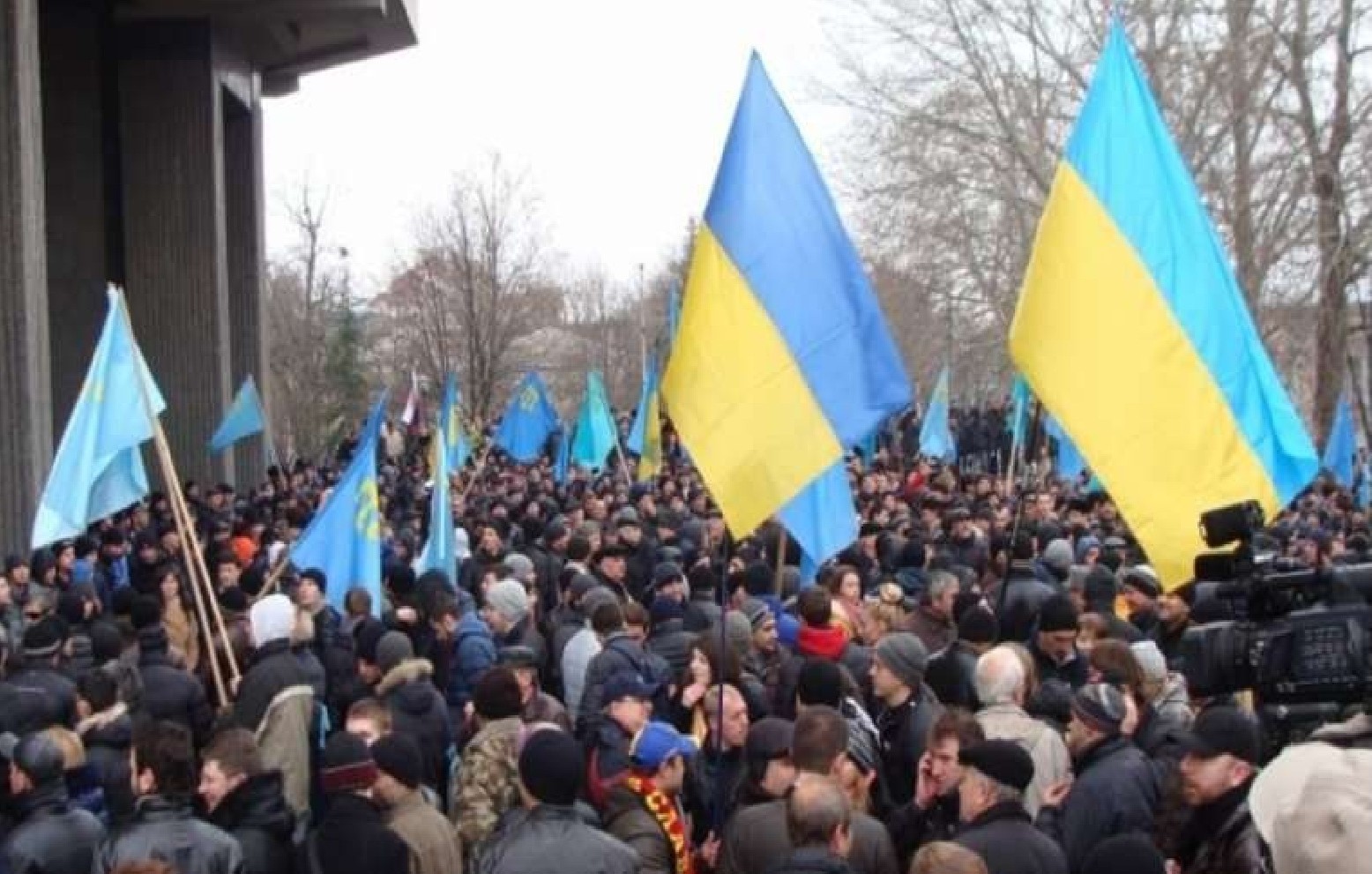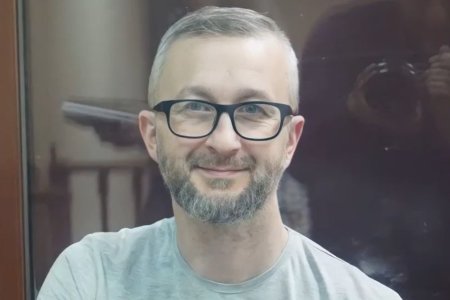
Crimean Tatars and their representative body, the Mejlis of the Crimean Tatar people, were at the forefront of Ukrainian resistance to Russia’s invasion of Crimea eleven years ago. It was they who thwarted Moscow’s plans back on 26 February 2014 to carry out a coup d’etat in Crimea without an open invasion and it is they who, in revenge for this, have suffered particular savage repression under Russian occupation. Any forced ‘peace’, that openly or tacitly accepted Russia’s continued occupation of Crimea, as well as other Ukrainian territory, would mark a terrible betrayal, as well as a carte blanche for Russia to continue both its repression and its aggression against Ukraine.
Stern warnings at present of a repetition of the 1938 Munich Agreement, with Ukraine as the country sold out this time, are belated. It was in 2014 that the world failed to react adequately to Russia’s aggression against Ukraine. At that stage, the dangers of appeasement or of a failure to act robustly enough might not have been clearly understood.
There can be no such illusions now. Even in 2021, Freedom House’s freedom index rated Russian occupied Crimea and ‘occupied Eastern Donbas’ as only slightly higher than North Korea. In 2025, the human rights organization has grouped all Russian occupied parts of Ukraine together and has given an absolutely damning rating of -1 (minus one). This translates into hundreds, if not thousands, of enforced disappearances, killings and political prisoners; total degradation of enforcement bodies and the courts, with ‘trials’ based on ‘confessions’ extracted through torture, as well as an end to any vestiges of free speech. While the new US administration may well believe that such human rights issues are not its business, it cannot dismiss international security quite so easily. Russia has already turned Crimea into a huge military base from which it was able to launch its full-scale invasion of Ukraine and it may well have the capacity to reach other countries as well. It is now seeking to establish the same military bases on other occupied territory with the military implications for multiple NATO members chillingly clear. Nor are we talking only of direct military aggression. Russia’s methods of warfare include forms of terrorism, sabotage, political and economic destabilization and deliberate attempts to create migrant crises. Hybrid warfare tactics against Ukraine were ignored for far too long, and it is mortifying that US leaders now appear eager to return to ‘business as usual’ with Russia.
While most people in the West only learned of Russia’s invasion on 27 February 2014, it is no accident that 26 February is marked in Ukraine as Crimean Resistance Day. That really was the day that around 10 thousand Ukrainians, most of them Crimean Tatars, rallied to a call from the Mejlis and gathered outside the Crimean Parliament, thus preventing Russia’s use of a marginal pro-Russian party to try to stage a coup without Moscow’s provable involvement. It was because of the Mejlis’ role here and in opposing the fake ‘referendum’ on 16 March 2014 that Russia first attacked individual Mejlis leaders, and then banned the Mejlis itself, a crime described as an attack on the entire Crimean Tatar people. The first arrest just over 11 years ago of Mejlis leader Akhtem Chiygoz and ‘trial’ against him and other Crimean Tatars went spectacularly wrong. Not because Russia was unable to imprison innocent men, but because the ‘trial’, thanks to Chiygoz and his lawyer, Nilkolai Polozov, exposed damning evidence for international courts of how Russia had planned and carried out its aggression (details here).
It is worth noting that Chiygoz and another Crimean Tatar Mejlis leader, Ilmi Umerov, were almost certainly released in 2018 as part of a Turkey-brokered agreement, in exchange for two Russian state-hired killers under arrest in Turkey. This was one of three occasions where Russia has agreed to exchange Crimean Tatar and other Ukrainian political prisoners in exchange for its criminals or for individuals who could expose its crimes. 35 political prisoners were freed in 2019 so that the Kremlin could keep Volodymyr Tsemach, MH17 witness / suspect away from the Dutch prosecutors investigating the downing of the Malaysian airliner by a Russian BUK missile on 17 July 2014. If Russian leader Vladimir Putin sought to keep those two exchanges secret, he was quite brazen by June 2024 in embracing state killers, spies and other operatives released by the west in exchange for American and Ukrainian political prisoners, including Crimean Tatar Mejlis leader, journalist and civic activist Nariman Dzhelyal.
In fact, everything was brazen about the abduction / arrest of Nariman Dzhelyal in September 2021, the torture of two cousins Asan and Aziz Akhtemov and their ‘trial’ on absurd ‘sabotage’ charges. Six months before its full-scale invasion of Ukraine, Moscow had abandoned any restraint in its repression and terror methods in occupied Crimea. Since then, the same has become true of all territory that has fallen under its occupation.
In a moving video address on 25 February 2025, Nariman spoke first of the horrific torture which his friend Asan Akhtemov and Asan’s cousin Aziz were subjected to and the threats against them after they retracted their so-called ‘confessions’ (more details here). Asan had been told that he could hope to get 3 or 4 years if he gave false testimony against Dzhelyal, the real target of this revenge ‘trial, who had to be sentenced to 17 years. Both cousins refused and are still imprisoned, with Asan sentenced to 15 years, Aziz Akhtemov to 13 years, with the same occupation ‘court’ handing down the 17-year sentence planned from the outset against Nariman Dzhelyal. Nariman says that he too was asked to denounce other political prisoners while held in a Siberian prison colony, which he too refused.
Nariman says that it is seeing pressure used to force Ukraine to do certain things that has made him recall his and his fellow political prisoners’ experiences. He is proud, he says, that “Ukraine has the will and the strength to say no to such proposals. We must not lose our dignity, we must not forget about our citizens on temporarily occupied territory. We do not have the right to forget about Crimea, about Luhansk, Donetsk, or any territory which for the moment is held by the enemy. As soon as we show any weakness, the enemy will be able to see itself as having won. I am proud to be able to join our joint struggle for our Ukraine, for our secure and free future. I am grateful to each and every person, to every country that supports us today, and makes Ukraine capable of fighting against the aggressor. But let us not forget: in the first instance, that depends on us. If we are strong, then nobody will force us to surrender our own interests.
Hold firm friends, and Glory to Ukraine!”
Elmira Ablyalimova, former Director of the Bakhchysarai Historical Cultural Reserve and Akhtem Chiygoz’ wife, put it most succinctly: “Forcing Ukraine to a so-called ‘peace’ is not about stopping the war, but about legalizing Russia’s crimes.”



